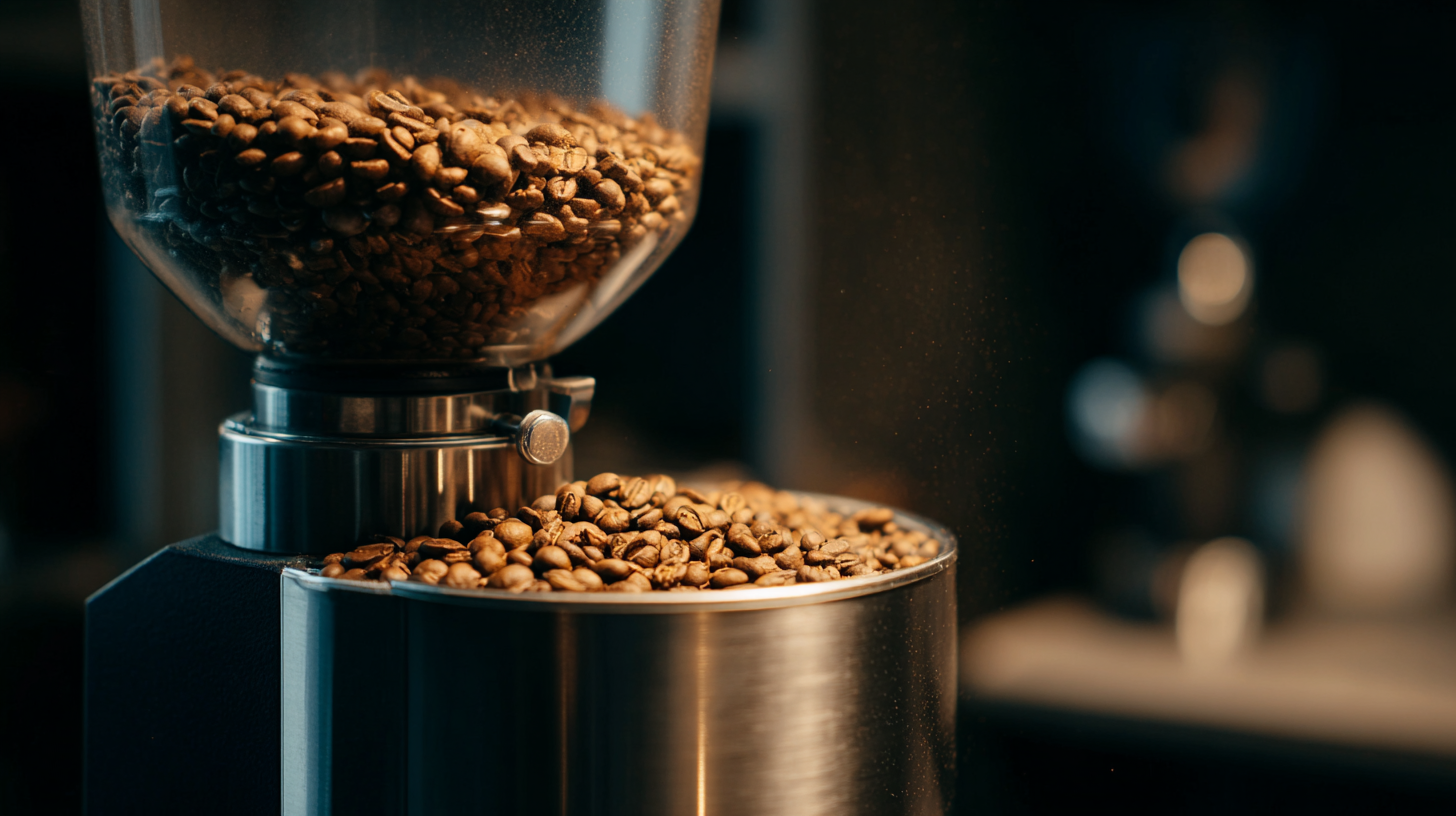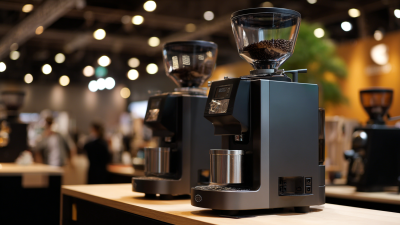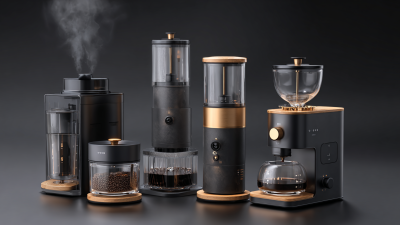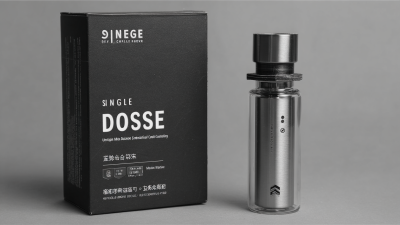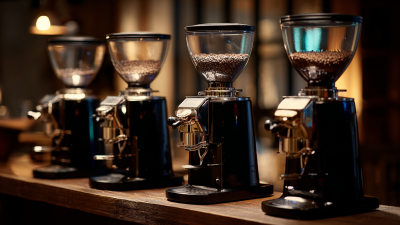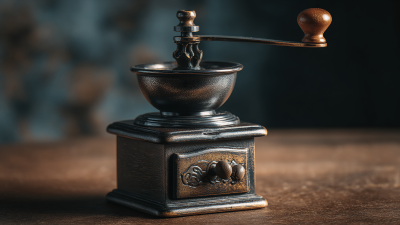Leave Your Message
-
Phone
-
E-mail
-
Whatsapp
-
Whatsapp


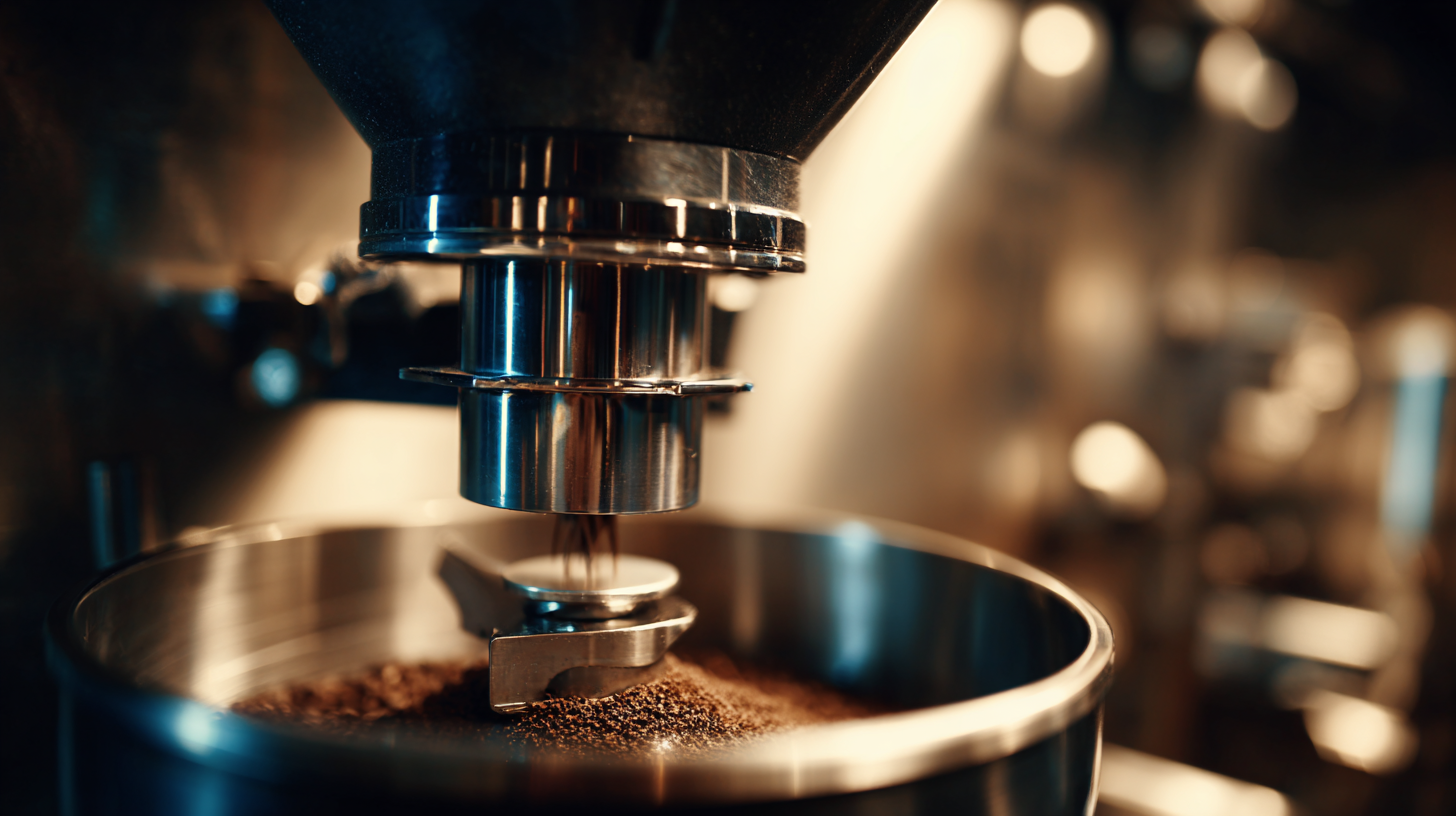 In the pursuit of the ultimate coffee experience, the significance of a Commercial Coffee Grinder cannot be overstated. This essential equipment serves as the cornerstone for achieving that perfect brew, unlocking a world of flavor and aroma that instant coffee simply cannot replicate. Unlike home grinders, which often fall short in consistency and quality, commercial-grade grinders are meticulously designed to provide an exceptional grind uniformity, ensuring that each cup is rich and full-bodied. The precision of a Commercial Coffee Grinder not only enhances the extraction process but also allows coffee enthusiasts to explore a diverse range of beans, from robust dark roasts to delicate light brews. By investing in a top-tier grinder, coffee lovers can elevate their brewing game, transforming their daily ritual into a gourmet experience that rivals even the finest coffee shops. Join us as we delve into the best commercial coffee grinders available, unlocking the secrets to a more satisfying and indulgent coffee adventure.
In the pursuit of the ultimate coffee experience, the significance of a Commercial Coffee Grinder cannot be overstated. This essential equipment serves as the cornerstone for achieving that perfect brew, unlocking a world of flavor and aroma that instant coffee simply cannot replicate. Unlike home grinders, which often fall short in consistency and quality, commercial-grade grinders are meticulously designed to provide an exceptional grind uniformity, ensuring that each cup is rich and full-bodied. The precision of a Commercial Coffee Grinder not only enhances the extraction process but also allows coffee enthusiasts to explore a diverse range of beans, from robust dark roasts to delicate light brews. By investing in a top-tier grinder, coffee lovers can elevate their brewing game, transforming their daily ritual into a gourmet experience that rivals even the finest coffee shops. Join us as we delve into the best commercial coffee grinders available, unlocking the secrets to a more satisfying and indulgent coffee adventure.
The grind size of coffee is a critical factor that directly impacts the flavor and overall experience of your brew. According to the Specialty Coffee Association, an optimal grind size ensures that water extracts the right balance of flavors, leading to a more nuanced and enjoyable cup of coffee. Different brewing methods require specific grind sizes; for instance, a fine grind is ideal for espresso, while a coarser grind works best for French press. This adaptability highlights the need for a high-quality commercial coffee grinder that can achieve precise grind settings.
Tips: To elevate your coffee experience, invest in a commercial coffee grinder with adjustable settings. This will allow you to experiment with various grind sizes according to your preferred brewing method. Additionally, always grind your beans just before brewing to preserve their freshness and aromatic qualities.
Understanding the importance of grind size also ties into consistency. Research from the Coffee Quality Institute shows that inconsistent grind sizes can lead to uneven extraction, resulting in bitter or sour flavors in your cup. By using a reliable grinder, you can ensure uniformity, which is essential for achieving the desired taste profile.
Tips: Take the time to calibrate your grinder periodically and ensure it is clean. Residue build-up can affect grind size and flavor extraction, ultimately impacting your coffee's quality.
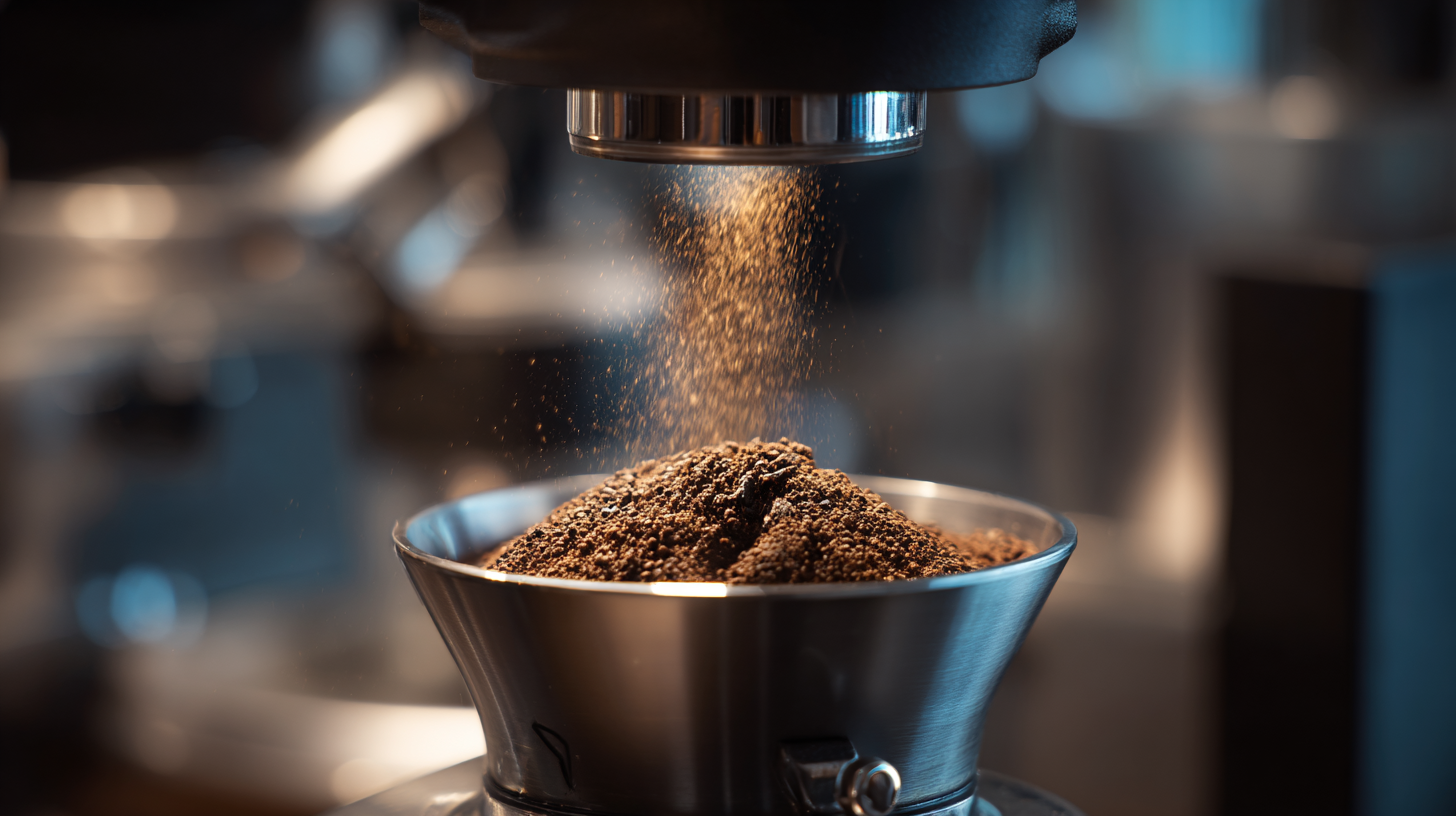
When it comes to crafting the perfect cup of coffee, the type of grinder you use can significantly impact the flavor and aroma of your brew. Commercial coffee grinders come in various types, each designed to cater to different brewing methods and coffee beans. Blade grinders, for instance, are often more affordable and compact, making them a popular choice for small cafés. However, they can produce uneven grinds that may lead to subpar extraction. On the other hand, burr grinders are favored by baristas for their consistency in grinding, as they crush the coffee beans between two surfaces rather than chopping them. This precision allows for optimal extraction, enhancing the coffee's flavor profile.
Another option in the commercial realm is the doser grinder, which dispenses a pre-measured amount of coffee with each pull of the lever. This type is particularly useful in high-volume settings where speed and efficiency are crucial. Lastly, there are also automatic grinders that can be programmed for timed doses, ensuring uniformity and reducing waste in busy environments.
Understanding the different types of commercial grinders available can significantly elevate your coffee experience, allowing you to maximize flavor and deliver exceptional brews to your customers.
When selecting the right commercial coffee grinder for your coffee shop, it's essential to recognize the impact of quality grinding on the overall coffee experience. The global coffee machine market is projected to reach an impressive $7.05 billion by 2023, with an anticipated compound annual growth rate (CAGR) of 5.10% from 2024 to 2031. This growth underscores the increasing demand for premium coffee solutions, making the right grinder a pivotal investment for any business aiming to enhance their offerings.
A well-chosen commercial grinder not only affects the consistency and quality of coffee but can also significantly influence customer satisfaction and retention. Factors to consider include grind size uniformity, speed, and ease of use. Additionally, different types of grinders—such as flat burr and conical burr—present unique advantages that can cater to specific brewing methods and customer preferences. Investing in the right commercial grinder can elevate your coffee shop's profile, drawing in enthusiasts who appreciate expertly crafted brews, and thus contribute to the overall success of your business in a competitive market.
| Grinder Type | Burr Material | Grinding Capacity (kg/h) | Adjustable Grind Settings | Price Range (USD) |
|---|---|---|---|---|
| Flat Burr Grinder | Steel | 20 | Yes | $400 - $800 |
| Conical Burr Grinder | Ceramic | 25 | Yes | $600 - $1200 |
| Espresso Grinder | Steel | 15 | Yes | $300 - $700 |
| High-Volume Grinder | Steel | 50 | No | $1000 - $2500 |
| Portable Grinder | Plastic | 5 | Limited | $50 - $150 |
Freshly ground coffee is a transformative element in the coffee brewing process, significantly enhancing its flavor and aroma. The moment coffee beans are ground, they begin to oxidize, releasing essential oils and volatile compounds that contribute to the rich bouquet and taste we crave. This chemical reaction is time-sensitive; the longer the ground coffee is exposed to air, the more these delicate flavors dissipate. By using a commercial coffee grinder, you ensure that your coffee is ground just before brewing, capturing the full spectrum of aromas and flavors that will elevate your drinking experience.
Moreover, the grind size plays a crucial role in extraction efficiency—different brewing methods require different grind sizes to optimize flavor. A commercial coffee grinder allows for precise customization, enabling coffee lovers to match their preferred grind consistency to their brewing technique, whether it's espresso, pour-over, or French press. This level of control not only enhances the complexity and depth of the coffee but also encourages a richer, more satisfying tasting experience with every cup. Investing in freshly ground coffee through a quality grinder is a fundamental step for those seeking to unlock the true potential of their brews.
To ensure your commercial coffee grinder performs at its best, regular maintenance is essential. Start by cleaning the grinder at least once a week. Residual coffee oils and grinds can build up, affecting the flavor of your coffee. Disassemble the grinder as per the manufacturer’s guidelines, and use a soft brush or cloth to remove any ground coffee particles. A vacuum can also help eliminate leftover debris from hard-to-reach areas.
Additionally, sharpening or replacing the blades is crucial for maintaining grind consistency. Dull blades may lead to uneven grinds, which can compromise the quality of your brew. Depending on usage, consider sharpening the blades every 6–12 months, or as frequently as needed. Lastly, check and adjust the grind settings regularly. As beans can vary in size and moisture content, fine-tuning your grinder’s settings will help you achieve the perfect extraction and elevate your overall coffee experience.
